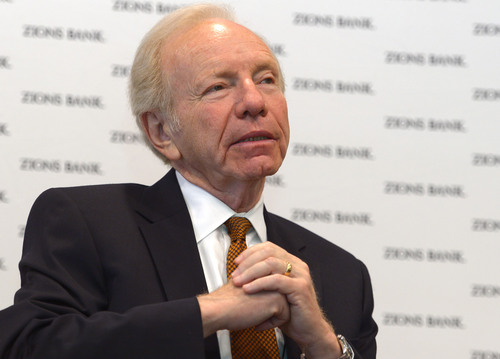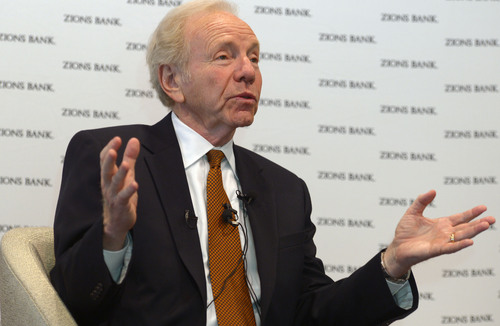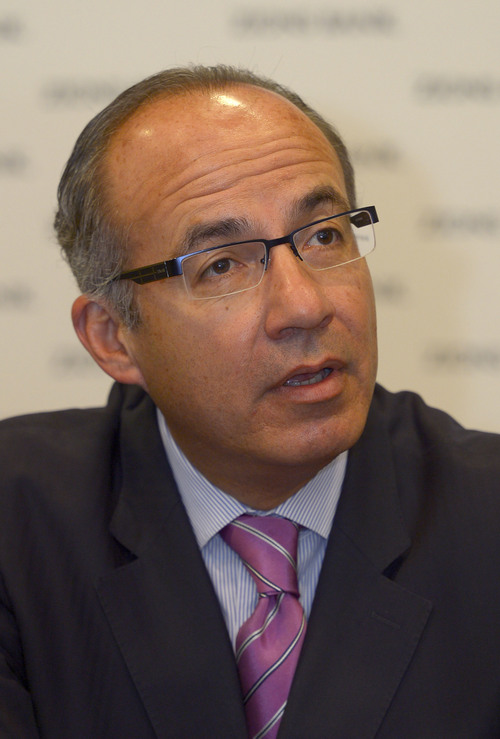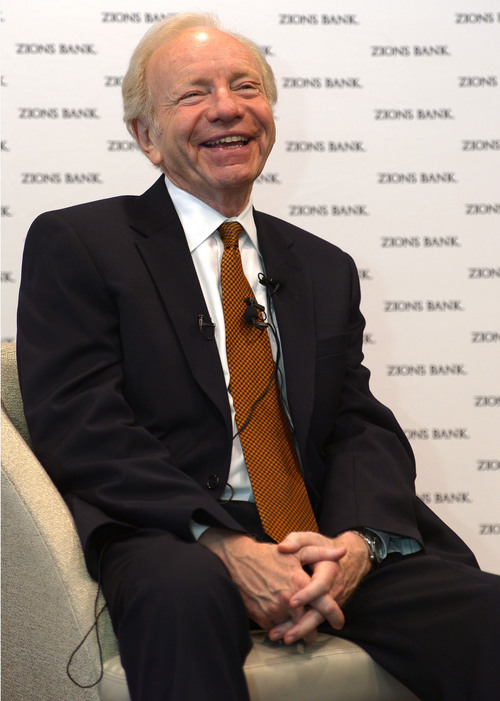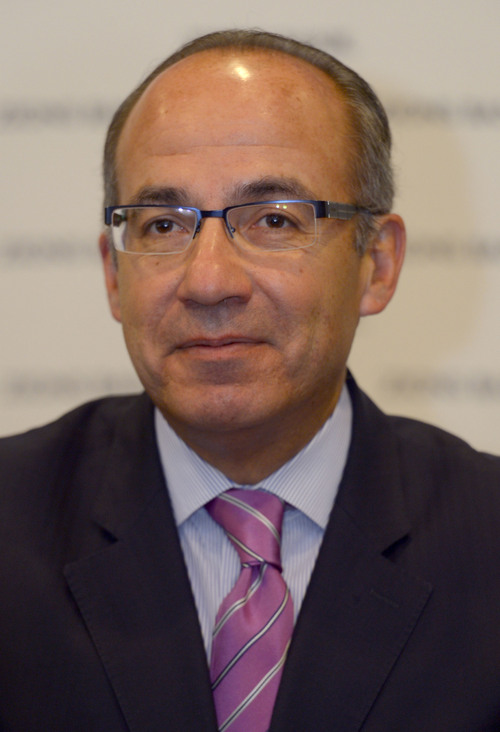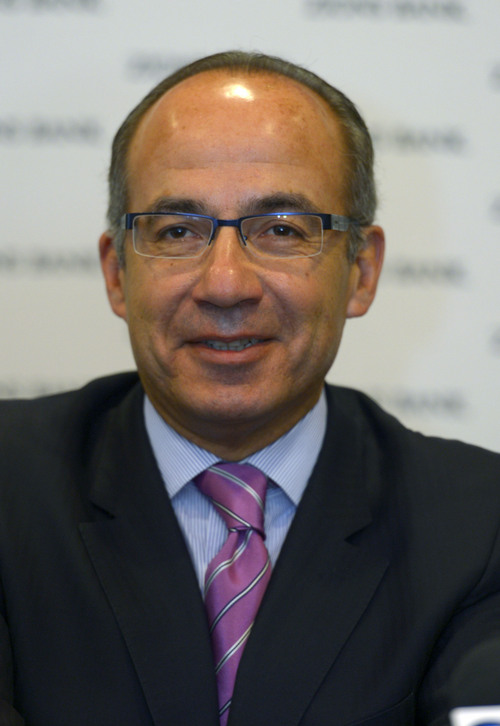This is an archived article that was published on sltrib.com in 2014, and information in the article may be outdated. It is provided only for personal research purposes and may not be reprinted.
The best way for the United States to fix its immigration problem is to help strengthen Mexico's economy, former Mexican President Felipe Calderon said Wednesday.
Speaking at Zions Bank's 13th annual Trade and Business Conference in Salt Lake City, Calderon said Mexico has become a "land for more opportunities for jobs" since the Great Recession.
Expanded U.S. investment in Mexico's economy would accelerate and widen improvements that he insisted were made during his six years (2006-2012) as president, reducing the incentive for Mexicans to leave their homeland for better-paying jobs to the north.
Utah Gov. Gary Herbert, who also spoke at the conference, reached a similar conclusion after leading a trade delegation to Mexico last month.
Calderon said the near collapse of the U.S. economy was partially responsible for slowing the flow of labor from south of the border, resulting in zero net migration since 2010.
But Calderon also claimed credit for shaking Mexico's economy out of the doldrums of recession with an aggressive road construction campaign, reforms that attracted greater investments in energy production, drastic reductions in government regulations over business and expanded health-care coverage.
"We bet on trade," he added. "Mexico is in the center of the world. We are a natural connection between the Atlantic and Pacific, north and south."
Noting that Mexico has free-trade agreements with 44 countries, he added "we reject protectionism."
Calderon was luncheon speaker at the forum, whose morning keynote address was delivered by Joseph Lieberman, a former U.S. senator (1989 to 2013 ) and Democrat Al Gore's vice presidential candidate in 2000.
Lieberman said the U.S. must continue to exert its world leadership in promoting opportunities for free trade, which is crucial to the well-being of the American economy.
"Politicians continue to call for America to reduce its international presence to focus on domestic and social problems. That's wrong and would have the opposite effect its advocates believe," he said. "If we don't engage in the world and strengthen our role as global leaders, we'll never create the jobs we need."
Since World War II, Lieberman said, "America's global military strength and deploying it around the world not only made us more secure and free, but also made us more prosperous. Stability is necessary for business to do business."
And, he added, "there is no better way to stimulate the economy than with free-trade agreements."
Lieberman expressed concern that Russia's seizure of the Crimea, and the swashbuckling attitude of its leader, onetime KGB official Vladimir Putin, could imperil the stability that has existed in Europe since World War II.
It would be wrong, he suggested, for the U.S. not to stand firm and prevent the Russians from trying to re-establish dominance over the Baltic countries and other satellites of the Soviet Union.
"Putin is tough and cunning and he'll push outward as far as we and the Europeans — if we look weak — invite him to do," Lieberman said, predicting Putin's approach won't work because Russia's worsening economy "inevitably will lead to unrest among the Russian people. … A 15-year-old boy in Haiti or Afghanistan has a longer life span than a 15-year-old boy in Russia."
On another front, Lieberman said he was disturbed by disparaging comments he heard about Mormons in 2011-12, when Mitt Romney and Jon Huntsman Jr., both members of The Church of Jesus Christ of Latter-day Saints, were running for the Republican presidential nomination.
"That was offensive and unacceptable," said Lieberman, the first Jewish politician on a presidential ticket. "Among some people there is still a bias against Mormons, [but] it is going away as people learn more. The sooner the better."


